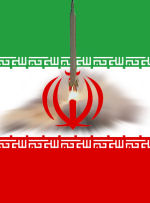 Iran sanctions seem to be all in the news this week, particularly with respect to who is and who isn’t selling stuff to Iran.
Iran sanctions seem to be all in the news this week, particularly with respect to who is and who isn’t selling stuff to Iran.
- The Wall Street Journal ran an opinion piece that suggested that although Germany talks a good talk about Iran sanctions, it’s just that: talk. German exports to Iran increased by 5 percent between January and October 2010. In 2009, German authorized 16 exports of dual-use items to Iran, including protective suits that could be used in chemical weapons manufacture.
- The Swiss have imposed additional sanctions on Iran, now finally prohibiting military exports in accord with UNSCR 1747. The new sanctions also target items that could be used in nuclear proliferation. Additionally, financial transactions with Iran are limited by requiring approval for transfers over a certain amount, imposing new restrictions on insurance and reinsurance for Iranian companies, and requiring additional due diligence in dealings with Iranian banks
- Norwegian daily Aftenposten published a Wikileaks cable expressing concern by the State Department over Chinese exports to Iran of items that could be used in its missile program. The cable suggested that although the Chinese were doing a better job of controlling problematic exports to Iran, these efforts were being undermined by the Chinese federal government delegating some export decisions to provincial authorities which were more likely to put local economic interests ahead of interests in impeding Iran’s missile program.
- A fascinating article in Sunday’s New York Times details the likely participation of the United States and Israel in the Stuxnet worm which crippled around 900 centrifuges used by Iran in uranium enrichment. The worm targeted a Siemens device that controlled the centrifuges, causing them to spin at a high rate that destroyed the equipment while sending a “man in the middle” message to the control panel indicating that the centrifuges were operating normally, thereby preventing the Iranians from shutting the centrifuges down until it was too late. Sources that examined the code of the worm indicated that the attack would only occur if 984 controllers were linked together, thereby limiting the worm from hitting the wrong target.
Moral of the story: a well-targeted cyber attack probably has done more damage to Iran’s nuclear program than economic sanctions and export controls.

 Posted by
Posted by  Category:
Category: 

 In a
In a 




